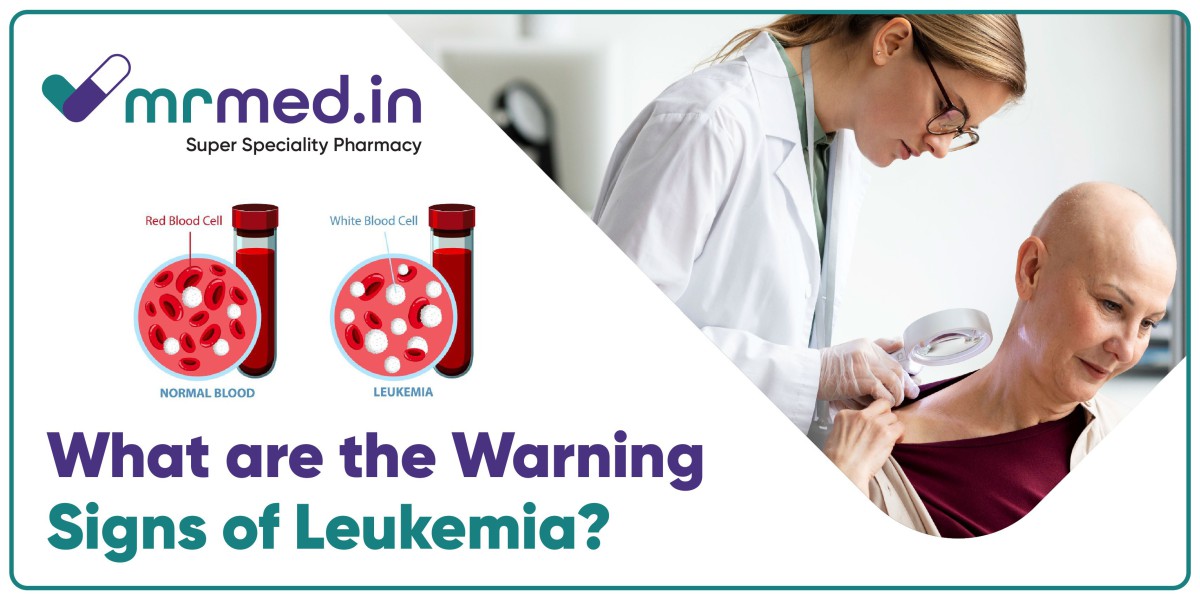Leukaemia affects the blood and bone marrow, where blood cells are produced. It occurs due to the overproduction of white blood cells, which can affect the bone marrow's ability to make platelets and red blood cells.
This blog provides information on how recognising the warning signs of leukaemia can lead to a timely diagnosis and effective treatment.
What is leukaemia and its symptoms?
Leukaemia is a cancer of the bone marrow and blood that usually involves the overproduction of abnormal white blood cells. It is classified into different types, including acute and chronic, lymphoblastic and myeloid. The symptoms of leukaemia vary according to the type and stage of the disease.
What are the signs of leukaemia?
- Unexplained weakness and fatigue
One of the most common early signs of leukaemia is persistent fatigue. If you feel very tired even after adequate rest, it could be a warning sign. This fatigue occurs because leukaemia affects the blood’s ability to transport oxygen and nutrients throughout the body.
- Loss of appetite
Loss of appetite is the most common sign of leukaemia. You might not feel like eating as much as usual or be least interested in food. Leukaemia affects the body in different ways, making it harder for the person to enjoy meals or feel hungry. If you notice any sudden loss of appetite, seek medical advice.
- Persistent fever and night sweats
A low-grade fever that does not go away can be an early sign of leukaemia. Night sweats, which involve excessive sweating during sleep, are also common symptoms. These are the body’s responses to abnormal blood cells.
- Frequent infection
Leukaemia can affect the immune system by disturbing the production of white blood cells, which help fight infection in the body. When your body can’t produce enough white blood cells, your immune system becomes weaker. If you are more prone to fever, cold, and flu than usual, it could be a sign that your body is struggling to defend itself due to leukaemia.
- Easy bruising and bleeding
Leukaemia affects the blood cells that help blood clot. As it affects these cells, it becomes harder for the blood to clot. This results in frequent nosebleeds, bleeding gums, or uncommon bruises. If you see these signs, it is important to seek medical advice.
- Bone or joint pain
Leukaemia can cause unexplained pain in the bones or joints. This happens because the cancer cells enter the bone marrow, which leads to discomfort or pain in these areas.
- Shortness of breath
Shortness of breath that appears suddenly or worsens over time can be a warning sign of leukaemia. This disease can affect the production of red blood cells, which affects the oxygen supply.
- Pale or yellowish skin
Leukaemia can cause the skin to become pale or develop yellowish skin. This occurs due to anaemia, a condition where the blood lacks red blood cells to carry enough oxygen to the tissues.
- Skin rashes
Leukaemia can sometimes cause skin rashes or changes. These rashes can appear as red spots, bumps, or patches and can vary in appearance. This occurs because leukaemia affects the blood and bone marrow, which results in problems with blood cell production and function, which leads to the development of rashes on the skin.
What are the diagnostic tests for leukaemia?
To diagnose leukaemia, doctors may use physical examination, medical history, and tests such as
- Blood Tests: To detect abnormal levels of blood cells.
- Imaging Tests: X-rays or CT scans can identify swelling in lymph nodes or other organs.
- Bone Marrow Biopsy: To check the bone marrow for cells indicating leukaemia.
What are the treatment and medication options for leukaemia?
If leukaemia is diagnosed, treatment options may include targeted therapies like Xospata 40mg Tablet (Gilteritinib), which is used for certain types of leukaemia. This medication works by targeting specific proteins involved in the growth of cancer cells, helping to treat the disease more effectively. Discussing treatment options with your healthcare team will help tailor the best treatment plan to your specific condition.
What’s in store
Recognising the warning signs of leukaemia is crucial for initiating timely medical intervention. Early detection not only improves treatment outcomes but can also enhance overall quality of life. If you experience any of these symptoms, don't hesitate to seek medical advice. Discussing with a healthcare professional can result in an accurate diagnosis and needs-based personalised cancer treatment. Stay proactive about your health—being informed and vigilant is key to navigating and managing your well-being effectively.



